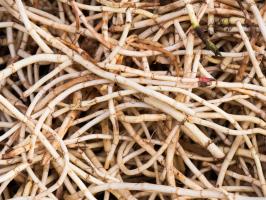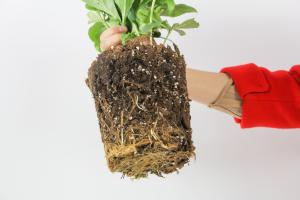Introduction
If you're looking for a low-maintenance indoor plant option, pot plants are a great choice. They can provide clean air and a calming atmosphere to any room. But since they can't get nutrients from the ground, it's important to know what to feed them. If you're wondering, "What do I feed my pot plants?" you're in the right place. Keep reading for all the information you need to keep your pot plants healthy and thriving.
Understanding Pot Plants
Pot plants, as their name suggests, are plants grown in pots. They are typically smaller than outdoor plants because they don't have as much soil to grow in. This means they require different nutrients than plants grown in the ground. Pot plants also have different watering and light requirements. Understanding these differences will help you choose the right food for your plants.
Types of Pot Plant Food
There are two main types of pot plant food: organic and inorganic. Organic plant food is made from natural materials like bone meal and blood meal. It's a slower release option, which means it will last longer in the soil. Inorganic plant food is synthetic and often comes in a granular or liquid form. It's a quick-release option, which means it will provide nutrients to your plants quickly. Each option has its benefits, and which one you choose will depend on your needs and preferences.
How to Feed Your Pot Plants
The easiest way to feed your pot plants is to use a fertilizer. Fertilizers come in several forms, including granular, liquid, and slow-release pellets. When you're fertilizing your pot plant, make sure you follow the instructions on the package. Over-fertilizing can actually harm your plant, so always err on the side of caution. If you're not sure how much fertilizer to use, it's better to use less rather than more.
Other Important Tips
Feeding your pot plants is just one part of keeping them healthy. Here are some other important tips to keep in mind:
Use a pot with drainage holes to prevent overwatering.
Water your plant when the top inch of soil is dry, but don't let it completely dry out.
Choose a potting soil designed for pot plants, which will have the right nutrient balance.
Make sure your pot plant gets enough light. Different plants require different levels of light, so research your plant's specific needs.
Conclusion
Feeding your pot plants can seem daunting, but it doesn't have to be. By understanding the specific needs of your plants and choosing the right food, you can keep them healthy and thriving. Remember to always follow the instructions on the fertilizer package and to be careful not to over-fertilize. With a little care and attention, your pot plants will brighten up any room in your home.

 how many times do yo...
how many times do yo... how many planted tre...
how many planted tre... how many pine trees ...
how many pine trees ... how many pecan trees...
how many pecan trees... how many plants comp...
how many plants comp... how many plants can ...
how many plants can ... how many plants and ...
how many plants and ... how many pepper plan...
how many pepper plan...

































